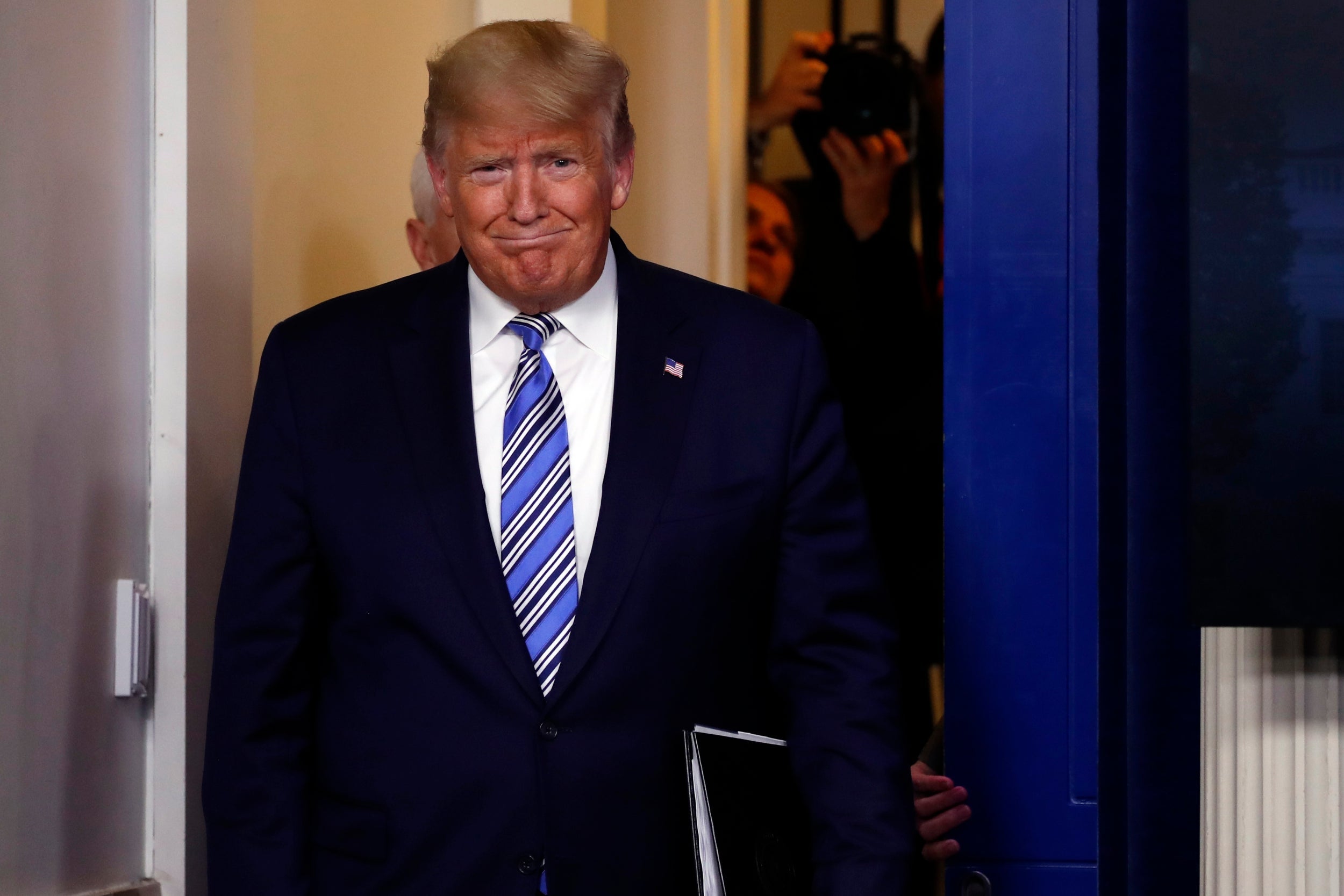This website uses cookies so that we can provide you with the best user experience possible. Cookie information is stored in your browser and performs functions such as recognising you when you return to our website and helping our team to understand which sections of the website you find most interesting and useful.

The Trump administration is barrelling ahead with a rule aimed at curtailing scientific research used in public health laws while experts in the field are focused on battling the coronavirus.
The Environmental Protection Agency (EPA) dismissed demands from 14 attorneys general, the National Governors Association, the National League of Cities and dozens of other interested groups that it suspend non-essential rule changes while the pandemic rages.
The proposal, titled “Strengthening Transparency in Regulatory Science”, means scientists would have to make public the raw data that supports academic studies like medical records, an impossibility given privacy laws.
Experts say the so-called "censored science rule" would prevent the EPA from using findings of public health studies in future and stymie regulation on proven public health threats, for example, air pollution.
James Goodwin, senior policy analyst with research nonprofit, the Center for Progressive Reform, told The Independent: “A lot of the science needed to effectively respond to this pandemic would not be available if this rule existed today.”
He pointed to the EPA’s research into the most-effective hand sanitisers for Covid-19.
“This rule would prohibit the EPA from using public health studies with patient data which doctors can’t disclose for privacy reasons. Studies with information on what kind of chemicals would be good for sanitisers are public health and patient studies. These critical studies would be off-limits under this rule.”
He added: “The question is why the Trump EPA is pushing this through now?
“It’s because they don’t have a lot of time to finish this rule before the election and it’s wildly unpopular. “They are doing it while everybody’s attention is focused on basic questions, like are my kids safe and where do I get toilet paper.”
The rule has attracted widespread criticism from the scientific and medical communities.
The EPA says the rule is about “transparency” but since its introduction in 2018, it has had half a million comments, mostly in opposition.
Joanne Carney, chief government relations officer at the American Association for the Advancement of Science, told The Independent: “AAAS is requesting an extension to the 30-day public comment period. However, EPA appears to be moving forward with this rule, which has already received nearly 600,000 prior public comments and strong opposition from scientific, medical, and public health experts, as well as critiques from the EPA’s own Scientific Advisory Board.
“We cannot speculate on EPA’s intent for moving forward at such a fast pace during a time when much of the country is focused on the coronavirus pandemic. Our nation’s governors recognise this challenge and have requested that all public comment periods be paused, and we encourage the federal government to heed their advice.”
An EPA spokesperson told The Independent: “EPA is considering all public comments on the 2018 proposed rule Strengthening Transparency in Regulatory Science and will also consider those comments received in response to the recently published supplement notice.
“Per House Report 116-100, “within 30 days after enactment or 30 days after this rule is finalised, whichever is later, the Committee directs the Agency to enter into a contract with the NAS to review this rule. The review should assess the manner in which the rule alters the ability of the Agency to use publicly available peer-reviewed scientific and medical studies in its regulatory decision-making, including what the NAS considers to be the best available scientific information, and be completed within 270 days.”
While the country is focused on social distancing, stocking up on food and medicine and worrying about loved ones, other federal agencies pushed forward with policies.
Donald Trump and his agency chiefs have focused on rolling back environmental rules that they see as hindrances to big business and the fossil fuel industry.
The Interior Department is moving ahead with a measure that would greatly ease protections under the more than century-old Migratory Bird Treaty Act.
Interior also ticked off required procedural steps in March on consideration of a ConocoPhillips oil and gas project in the Alaska wilderness and on a development plan for land surrounding New Mexico’s Chaco Culture National Historical Park, a World Heritage site at the centre of a long debate over oil and gas development, among other projects.
Interior spokesman Conner Swanson called it “unfortunate that these interest groups are playing politics at a time when all Americans need to come together”.
“All DOI actions, including comment periods, are being evaluated on a case-by-case basis and adjustments are being made to ensure we are allowing for proper public input, while protecting the health and safety of the public and our employees,” Mr Swanson told AP.
Associated Press contributed to this report



 Africana55 Radio
Africana55 Radio 

